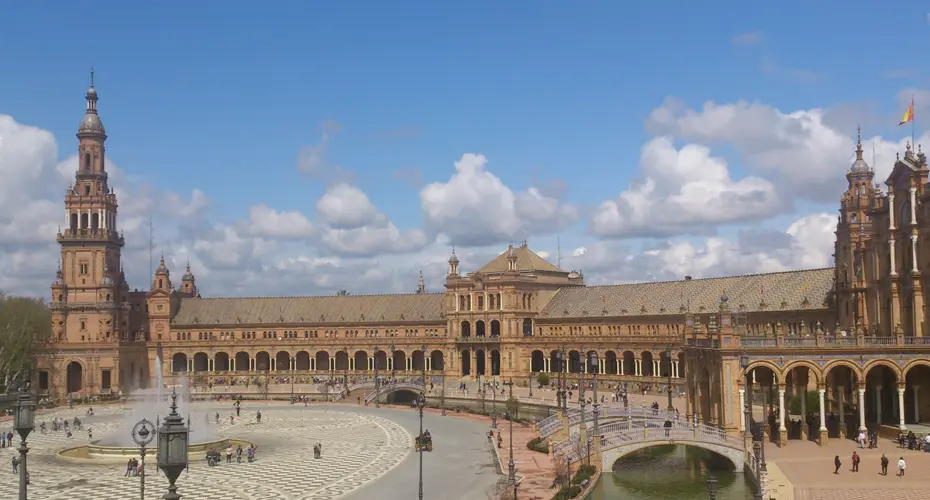Fieldwork in Geography
Our field courses are among the most inspirational, rewarding and enjoyable experiences as an undergraduate student at the University of Exeter. They form an integral part of your degree, positioned at the very heart of our teaching in Geography.
As one of the keystones of geographical understanding, field courses provide you with the ambition and ability to develop and apply the knowledge gained from our world-leading academic staff in the classroom to the central issues, concerns and experiences facing the world around us. They help you gain a greater understanding of how people and landscapes interact, as well as enhance your skills in teamwork and independent thought.
Each field course is carefully designed to bring theory to life, whether through developing fundamental field techniques in some of the most stunning landscapes the UK has to offer, or honing the more challenging, independent practical research skills that will ensure you develop and flourish as a geographer or environmental scientist.
Exact field course module options are specified on each degree course page.
Field course destinations
Please note that destinations are subject to change. To see where degree courses are based, check the programme pages.
Details to follow.
Berlin has been central to many of the key political and urban issues of the last 100 years; at the heart of the turmoil during the rise of fascism; as the symbolic centre of the Cold War; and as a city now that exemplifies many of the key urban issues of the 21st century. Through a series of activities in various sites, both well-known (e.g. the Reichstag, the Berlin Wall, the Jewish museum) and lesser-known (e.g. the Stolpersteine memorials, the neighbourhood of Neukolln), and working in small groups with guidance and advice from academic staff, this trip equips you with the intellectual resources to undertake your own explorations and analysis of this fascinating city.
Field course themes:
- Political, Urban and Cultural Geography
- Cold War Histories and Legacies
- Places and Spaces of Memorialisation
- Geographies of Re-unification
- Culture, Economy, and the City
Example itinerary:
| Day 1 | Kreuzberg Berlin Wall Memorial Templehof |
|---|---|
| Day 2 | The Reichstag Marx-Engels Forum UrbanSpree Mauerpark |
| Day 3 | Holocaust Memorial The Jewish Museum |
| Day 4 | Neukolln Potsdamer Platz Project proposals workshop |
| Day 5 | Independent group work Field trip social in evening |
| Day 6 | Independent group work Transfer to airport/UK |
Please note this is an example itinerary and has been taken from a past field course. Field course itineraries are subject to change.
Costs associated:
| Transport to and from UK departure airport/Eurostar station | Coach provided from campus to/from Bristol airport |
|---|---|
| Travel to field course destination | Paid for and booked by student. Students are able to claim the cost back as travel expenses up to a specified limit* |
| Accommodation | Covered by the university |
| Equipment (including suitable clothing and footwear) | No specialist equipment needed |
| Subsistence (e.g. meals, snacks and drinks) | The accommodation provides breakfast and an evening meal, students are required to pay for their lunches |
| Other travel (e.g. Metro pass) | Berlin travel card cost is covered by the university |
| Entrance fees | Entrance fees to museums covered by the university |
| Visas | Paid for by the student, if applicable |
| Vaccinations | Not applicable |
*The reimbursement cap is tailored for each trip to cover the full flight and transfer cost if you book the recommended flights in a timely fashion, therefore if you follow our guidance, you will not be out of pocket after reimbursement.
Field course costs are approximate and funding provided is subject to change. Please note that this cost is based on 2018/19 prices.
Details to follow.
Please note this is an example itinerary and has been taken from a past field course. Field course itineraries are subject to change.
Lying at the edge of the Arctic Circle, Iceland presents a unique environment in which to study glacier geomorphology and climate change over the past 150 years. Its position at 60 degrees North on the Mid Atlantic Ridge in the North Atlantic Ocean has led to the development of a spectacular landscape which records contemporary and ongoing glacial, volcanic and fluvial processes. This field course focuses on these processes at field sites in the southeast of Iceland at the edge of the Vatnajökull Ice Cap. During the trip we will be based at a hotel located at the foot of Svinafellsjokull – a glacier in the world-famous Skaftafell National Park.
You will have the opportunity to conduct a research project working in small groups which will include:
- Glacial geomorphology
- Glacial hydrology including outburst floods (jökulhlaups)
- Remote sensing techniques
- Relative dating techniques
- Sedimentology
As well as some great physical geography such as Thingvellir, Gulfoss and Geysir, there may be a chance to see the northern lights, and relax in a geothermal pool.
Student support
We make every effort to ensure students have the opportunity to experience our field trips and are supported during the process of deciding their field trip destination and embarking on the field trip. Prior to each trip we provide extensive briefings on travel arrangements, accommodation options, equipment and support offered throughout the trip.




